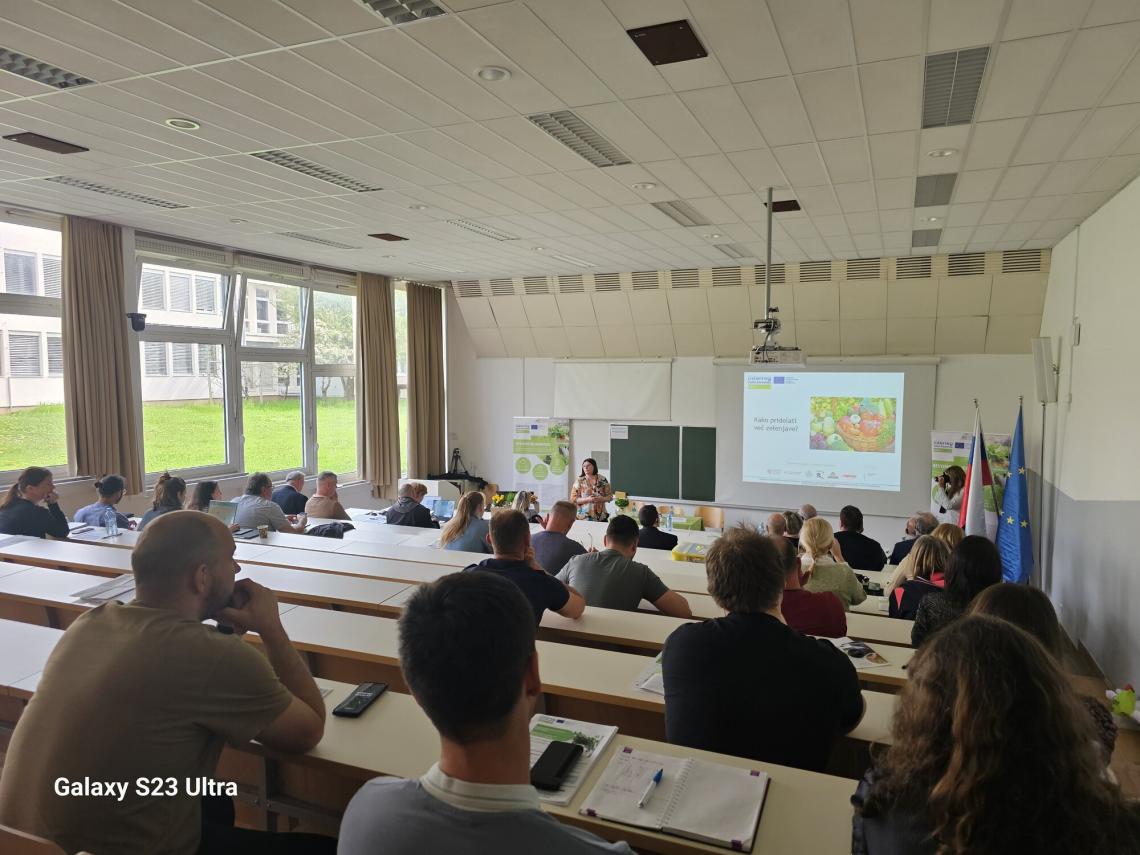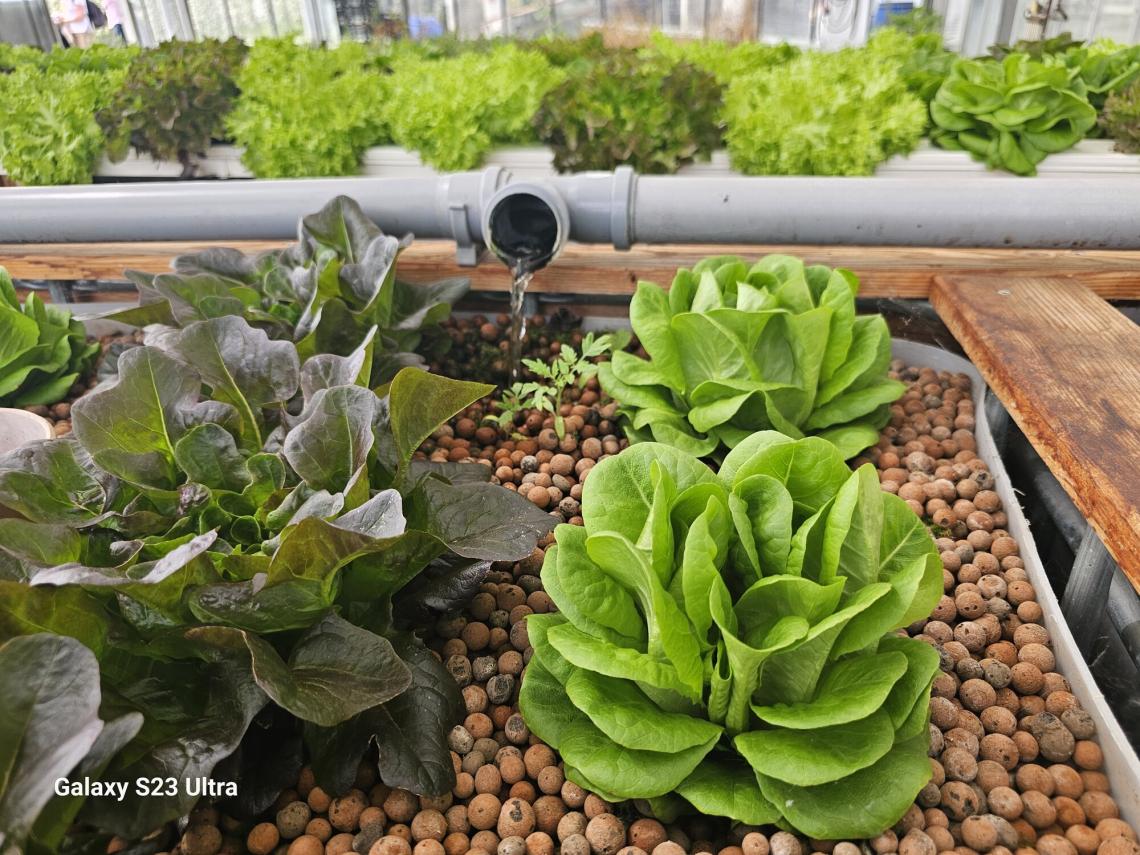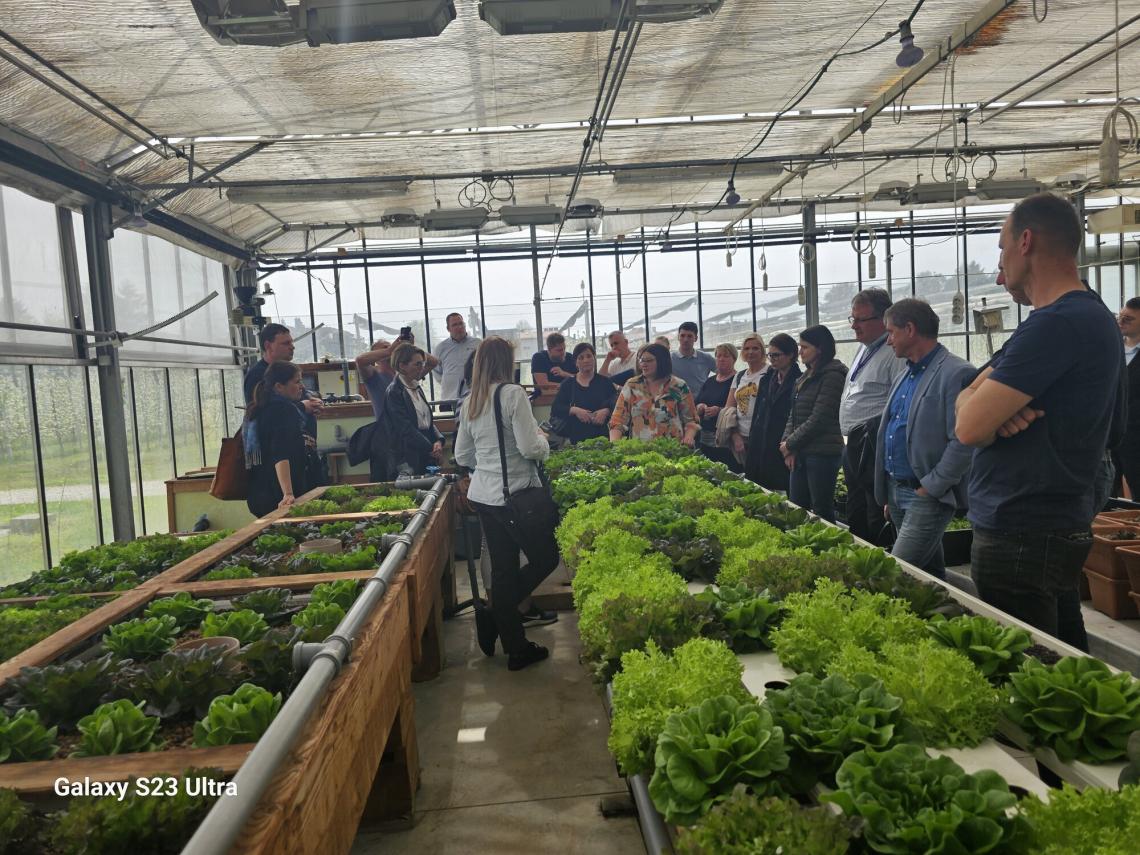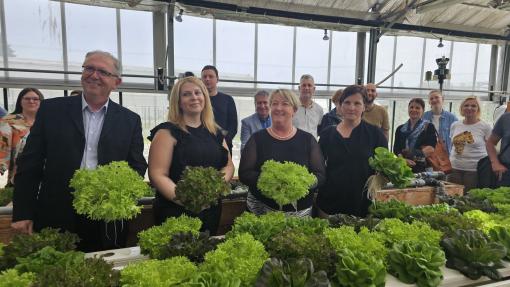On April 9, 2024, the University of Ljubljana, Biotechnical Faculty, hosted a significant conference on sustainable food production with aquaponics. The event was organized by the partners of the BeBlue project, operating within the cross-border cooperation program Interreg VI-A Italy Slovenia. The project explores innovative approaches to vegetable production using fish and aquaponic systems.
Aquaponics - Advanced Model of Circular Economy
The keynote speakers at the conference were Prof. Dr. Marina Pintar, Dean of the Biotechnical Faculty of the University of Ljubljana, and Roberto Pastres from Ca' Foscari University in Venice, who is also the leading partner of the project. Professor Andrej Udovč introduced the BeBlue project, aimed at expanding aquaponics with measures to facilitate plant management, including digitization, and developing tools to assess environmental and economic sustainability. In a world where the population is increasing and competition for agricultural land is intensifying, alternative methods of vegetable production have become essential. Aquaponics is not only an innovative production method but also a model example of a circular economy in practice. It combines hydroponic plant cultivation with fish farming in a single system, providing optimal conditions for plant growth through water and nutrient recirculation provided by fish excretions.

The morning session of the conference included a series of expert lectures on aquaponics: Associate Prof. Dr. Ana Slatnar highlighted the basic requirements and aspects of expanding hydroponic production of plant-based food, Mag. Miha Štular, a specialist in fish farming at the KGZS - Kranj Institute, presented fish and water quality parameters in aquaponics, and Tine Matoš, the head of the Purissima center at KZ Agraria Koper, shared experiences in vegetable production with aquaponics. Associate Prof. Dr. Mojca Bavcon Kralj from the Faculty of Health Sciences, University of Ljubljana, presented the interaction between pesticides, microplastics, and algal biomass in agricultural soils. The afternoon discussion, following the World Café method, was led by Marco Francese of Shoreline. It was a Technical Working Group, because many people were already familiar with aquaponics. The participants focused on the analysis of the critical points of the aquaponic plant observed just before, such as the risk of increasing temperatures in summer and the use of alternative materials to plastic. In this regard, they suggested possible solutions or alternatives.
The main findings of the conference confirmed that the expansion opportunities for aquaponic systems are primarily in urban areas, where there is an untapped source of heat, such as flat roofs, industrial areas, or areas near fish farms, where there are abundant unused nutrients in the water. Aquaponics also proves suitable for educational institutions, illustrating the nutrient cycle and emphasizing short transport routes, as well as being an attraction on tourist farms.

In addition to the educational aspect, conference participants visited the aquaponic system at the Biotechnical Faculty, where perfect lettuce had grown in just one month, crisp and free from defects caused by pests or diseases in conventional soil cultivation. During the reception, held in the spirit of aquaponics under the name Symphony of Vegetables and Fish, participants tasted the first harvest of aquaponic lettuce.


